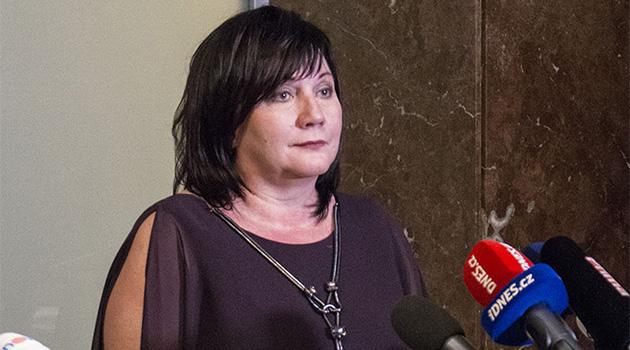Czech Finance Ministry proposes all EU financing for social projects be provided ex-post, which could cut nonprofits off from those resources

News sever iROZHLAS.cz reports that the Czech Finance Ministry, headed by Alena Schillerová, is planning changes to the system for disbursing European Social Fund (ESF) subsidies. The money allocated for so-called “soft projects” would not be disbursed to charities and nonprofit organizations until after those projects end.
According to representatives of nonprofits, such a practice would de facto cut their organizations off from accessing EU money. The contemplated procedure is also being criticized by the ministries that distribute social project subsidies funded from Brussels.
This change of rules could impact the entire nonprofit sector, as Daniel Hůle of the People in Need (Člověk v tísni) organization pointed out. “This is a measure that will affect nonprofit organizations fatally. Even we would not be able to stretch our own resources that way, to say nothing of most of the other nonprofits,” he told iROZHLAS.cz, adding that the ministry’s contemplated procedure plays above all into the hands of big firms.
“[Businesses] primarily create profit and are able to invest the money they accumulate. That will be their big competitive advantage,” he added.
The current practice is such that at the beginning of implementing a project, a deposit is disbursed from which the organization then finances the project activities. Most of the time the money spent is accounted for after half a year.
The provider of the subsidy then verifies the financing has been correctly used and if all is in order, sends the implementer another installment. This kind of financing is called ex-ante.
If the money were to be disbursed after projects end – ex-post financing – that would conflict with how nonprofit organizations function, because they do not have the capital to pre-finance their projects. “Unlike investment projects, nobody will lend [nonprofits] money for their activities, they don’t have a way to guarantee the loan,” Eva Schönherrová of the Czech Bishop’s Conference told iROZHLAS.cz.
Another change being discussed, according to iROZHLAS.cz, would be increasing the co-financing requirement for projects from the ESF during the next program period. That, too, would be a problem for nonprofit organizations above all, whose costs are usually 100 % covered by funders without requiring co-financing from the organizations themselves.
The Association of Public Benefit Organizations of the Czech Republic (Asociace veřejně prospěšných organizací ČR) is against the changes. “We know that this can be an enormous problem for nonprofits. They do not have funds that they can use as they please for co-financing, while ex-post financing would not allow them to manage their financing responsibly. There is a danger that this will substantially reduce the proportion of resources that nonprofits draw from the EU funds. Already now just 2 – 3 % of those funds are drawn by nonprofits,” the Association posted to social media.
The Czech Education Ministry, led by Robert Plaga (Association of Dissatisfied Citizens – ANO), is for preserving the existing model. “We consider ex-post financing to be destructive. Recipients would have to take out loans to be able to get a project going at all, which would make all activities more expensive, would slow them down, and above all would endanger the quality of the project designs,” said Education Ministry spokesperson Aneta Lednová.
Jana Maláčová (Czech Social Democratic Party – ČSSD), head of the Czech Labor and Social Affairs Ministry, which administers support for social projects, is also against Schillerová’s currently contemplated changes. “We undertook a survey of recipients and the findings confirm the gravity of this problem. Abolishing ex-ante financing would reduce the number of applications submitted for support in a fundamental way, and therefore would also reduce the absorption capacity of the future program,” Vladimír Dostálek of the ministry’s press department described the impact.
By changing the rules, the Finance Ministry especially wants to ease the load on the state budget. “The biggest negative impact and, at the same time, the biggest reason for abating this type of financial resources provision is the disproportionately large gap between expenditures disbursed from the budget for pre-financing these EU instruments and the associated incomes,” explained Anna Fuksová of the Finance Ministry’s press department.
The rules for distributing EU money for the 2021-2027 budget period are still being discussed. The currently contemplated change by the Finance Ministry is, therefore, not definitive and can change.
